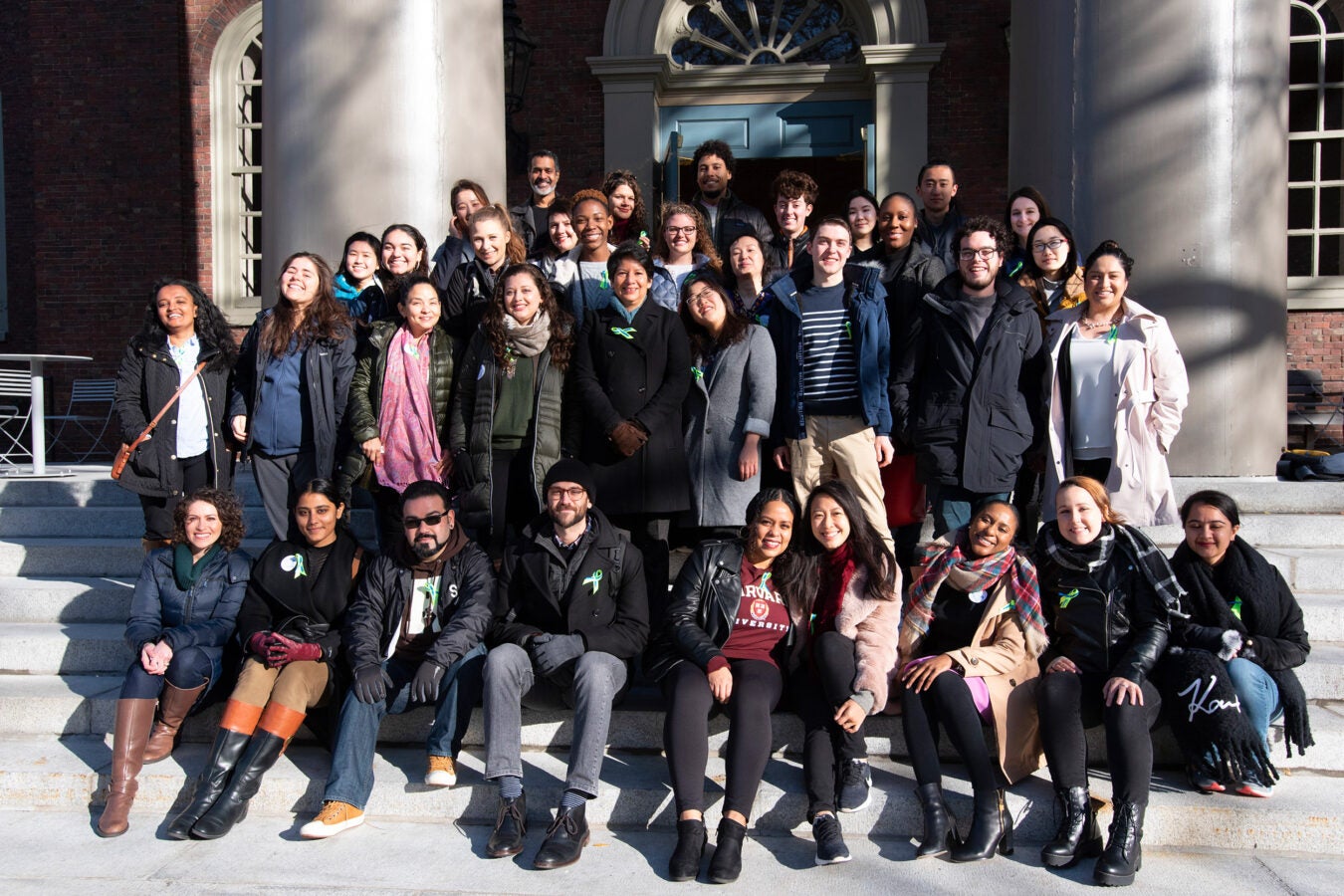“The Next Gen Initiative is intentional about aligning and enhancing Harvard’s existing institutional supports to increase awareness, access, and effectiveness to support the talents and contributions of these students,” she said. “They belong here and we are better because of them. They are the next generation to lead.”
On National First Generation College Student Celebration Day, Nov. 8, Sharick hosted the Second Annual First-Generation Student Celebration Day, a Harvard-wide virtual event to honor the contributions of first- and next-generation students, staff, faculty, and alumni. Co-sponsored by the Harvard Foundation, Harvard First Generation Alumni, Harvard Primus, the Immigration Initiative, and the Graduate Commons Program, the event kicked off a month of next-gen virtual programming on skill-building, career development, and mindfulness, as well as a “Know Your Strengths” workshop for first-generation immigrant students.
November also marked the 55th anniversary of the Higher Education Act signed by President Lyndon B. Johnson, which stated, “The path of knowledge is open to all who have the determination to follow it.”
For FGLI alumnus Gorick Ng ’14, M.B.A. ’18, “The word ‘first-gen’ to me is more than just an identity, more than just a community, it’s a superpower. It’s the superpower of hard work, of persistence, of tenacity.”
Ng emphasized the importance of connecting with others to avoid becoming overwhelmed and confused because of “not understanding the rules of the game.”
“While we are waiting patiently for one door to open for us, there may be plenty of other people who know how to take a side door,” Ng said. “You might not know how to approach something, but someone does. Find them, learn from them, do it early, do it often.”
Sharick also shared some of the difficulties that first- and next-generation students face, including racial injustice, financial challenges, culture shock, imposter syndrome, and limited family support.
“First-generation students learn a lot by observing and assimilating information from their surroundings, but it is much more difficult now due to remote learning,” Sharick said. “The Zoom classroom has taken away a critical component of information. The observational data they are presented with by their peers, and the clear expectations of what is supposed to be happening, is missing.”
Sharick said there is no baseline for self-regulation or comparison, and no one provides explicit feedback or validates how FGLI students fit in, leaving them to wonder, “Am I doing it right?”
An immigrant and former first-generation student herself, Martiza Hernandez, dean of enrollment services at HGSE and a Next Gen Initiative project adviser, said she understands the importance of growing a program for first- and next-generation students, something she didn’t have in college.
“It was a lot of trial and error and reaching out to people who could guide me in this journey, and learning to understand the resources and supports that are there,” she said. “Especially now that we are remote, we need community more than ever. Remember we aren’t alone, and that we’re still here.”


